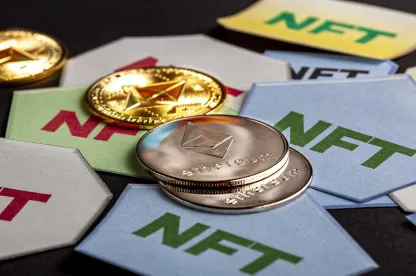The Internal Revenue Service (IRS) was one of the first United States regulators to provide guidance on the tax treatment of virtual currencies such as Bitcoin. Starting back in 2014 with its release of Internal Revenue Bulletin: 2014-16, the IRS stated that bitcoin is taxed as a property. Then in 2019, the IRS addressed the tax implications of a hard fork in Revenue Ruling 2019-24.
Mindful of the continued expansion and transition of this industry, the IRS released draft filing instructions for the 2022 Form 1040, U.S. Individual Income Tax Return, on October 17, 2022. The draft instructions provide further clarity that IRS guidance applies to the full spectrum of what are called “digital assets” and address how digital assets should be reported on U.S. tax returns. The draft instructions to the 2022 Form 1040 indicate that the term “virtual currency” is now being supplemented with a broader term, “digital assets.”
Since 2019, the Form 1040 has included a question regarding virtual currency requiring filers to check ‘yes’ or ‘no’ to disclose whether they had engaged in any transactions involving virtual currency during the tax year. The draft instructions now expand this disclosure to include all digital assets,
“Virtual currency” is defined as:
“…a digital representation of value, other than a representation of the U.S. dollar or a foreign currency (“real currency”), that functions as a unit of account, a store of value, or a medium of exchange.”
The new “digital assets” definition highlights the IRS’ attempts to catch up with the evolving landscape and vastly broadens the scope of this question. Specifically, the IRS defines digital assets as:
“…any digital representations of value that are recorded on a cryptographically secured distributed ledger or any similar technology. For example, digital assets include non-fungible tokens (NFTs) and virtual currencies, such as cryptocurrencies and stablecoins. If a particular asset has the characteristics of a digital asset, it will be treated as a digital asset for federal income tax purposes.”
The IRS’ definition of digital assets explicitly includes Non-fungible Tokens (“NFTs”). The IRS’ inclusion of NFTs seems to signal that the IRS plans to treat NFTs like other digital assets rather than as artworks or collectibles, as some may have preferred. However, the IRS has not said anything explicitly in this regard and whether the IRS will tax the sale of NFT collectibles at a lower rate than physical collectibles is yet to be seen.
In addition to providing an expanded definition of digital assets, the IRS has provided additional guidance on when to check ‘yes’ in response to the IRS’ question of whether or not the taxpayer has engaged in any transactions involving cryptocurrency. According to the draft 2022 Form 1040, the question will read:
“At any time during 2022, did you: (a) receive (as a reward, award, or payment for property or services); or (b) sell, exchange, gift, or otherwise dispose of a digital asset (or a financial interest in a digital asset)? (See instructions).”
In addition to the inclusion of transactions that involve NFTs in the IRS requirement to check a box on Form 1040, the IRS’ question, as revised also captures other transactions that involve digital assets such as “play-to-earn-games” where taxpayers may earn digital assets.
These additional instructions provided by the IRS raise several questions and concerns for tax professionals and for taxpayers. One question is given the broad scope of digital assets, why should the mere fact that a transaction is “cryptography secured” require it to be looked at differently on a tax form? Another – Is it fair to add additional regulatory burdens on transactions simply for attempting to be more secure and transparent?
The update to the form instructions is a signal that the IRS is trying to stay mindful of the developments occurring in the realm of digital assets and working to further enhance the government’s overall enforcement strategy from an income tax reporting perspective. With the adoption of this broader language, we hope that further regulatory guidance will be forthcoming and without that, we recommend taking a conversative and inclusive approach for any filing.






 />i
/>i

